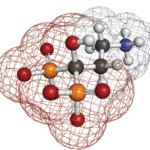Editor’s note: What research on psoriatic arthritis (PsA) presented at ACR Convergence 2024 has the greatest potential for a positive impact on clinical care, treatment options or serve as the basis for future research? That’s the question The Rheumatologist asked David S. Pisetsky, MD, PhD—our founding editor—to consider. Dr. Pisetsky, a professor of medicine and immunology…









